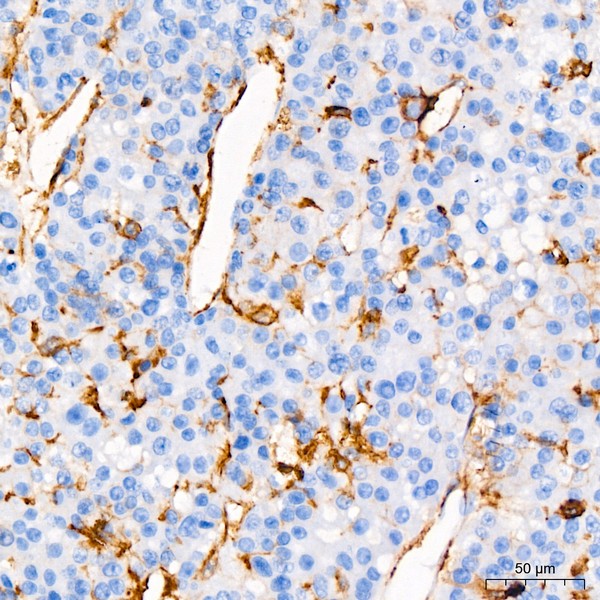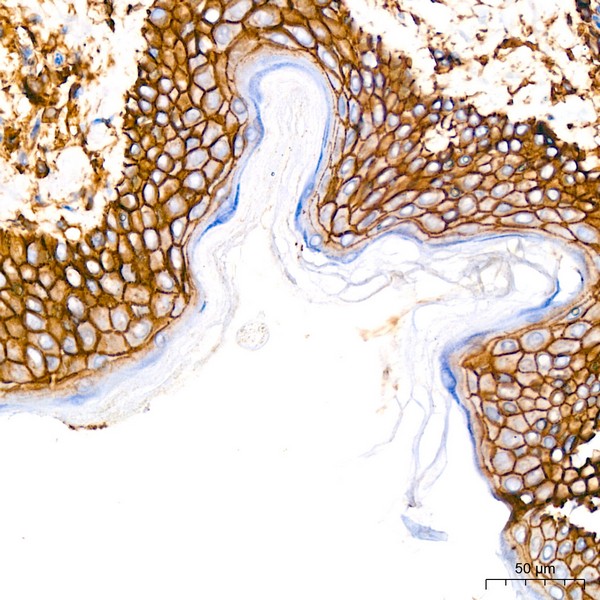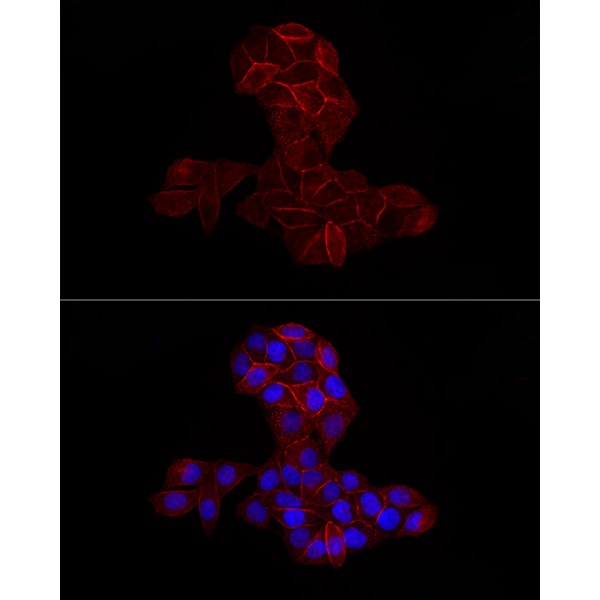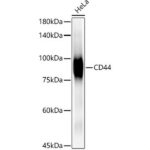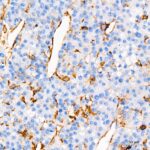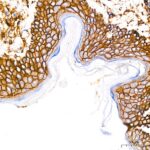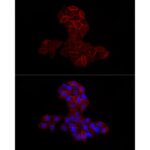CD44 Rabbit mAb (A19020)
$148.00 – $548.00
Abclonal CD44 Rabbit mAb (Catalog Number: A19020) encoded by this gene is a cell-surface glycoprotein involved in cell-cell interactions, cell adhesion and migration.
- Details & Specifications
- References
| Catalog No. | A19020 |
|---|---|
| Product Name | CD44 Rabbit mAb (A19020) |
| Supplier Name | ABclonal, Inc. |
| Brand Name | Abclonal |
| Synonyms | IN; LHR; MC56; MDU2; MDU3; MIC4; Pgp1; CDW44; CSPG8; H-CAM; HCELL; ECM-III; HUTCH-1; HUTCH-I; ECMR-III; Hermes-1 |
| Gene Name | CD44 |
| Protein Name | CD44 |
| Uniprot/Swissprot ID | P16070 |
| Gene ID | 960 |
| Clone | ARC52411 |
| Clonality | Monoclonal |
| Source/Host | Rabbit |
| Reactivity | Human |
| Conjugate | Unconjugated |
| Note | Products will be shipped from the warehouse in Massachusetts. Promotion is running from time to time. Welcome to send a request for quote to message@sydlabs.com. |
| Order Offline | Syd Labs, Inc. 4 Avenue E, Hopkinton, MA 01748 USA. Phone: 1-617-401-8149 Fax: 1-617-606-5019 Email: message@sydlabs.com |
Description
A19020: CD44 Rabbit mAb
The protein encoded by this gene is a cell-surface glycoprotein involved in cell-cell interactions, cell adhesion and migration. It is a receptor for hyaluronic acid (HA) and can also interact with other ligands, such as osteopontin, collagens, and matrix metalloproteinases (MMPs). This protein participates in a wide variety of cellular functions including lymphocyte activation, recirculation and homing, hematopoiesis, and tumor metastasis. Transcripts for this gene undergo complex alternative splicing that results in many functionally distinct isoforms, however, the full length nature of some of these variants has not been determined. Alternative splicing is the basis for the structural and functional diversity of this protein, and may be related to tumor metastasis.
Immunogen Information about CD44 Rabbit mAb (A19020)
Immunogen:Recombinant fusion protein containing a sequence corresponding to amino acids 20-178 of human CD44 (NP_000601.3).
Sequence:AQIDLNITCRFAGVFHVEKNGRYSISRTEAADLCKAFNSTLPTMAQMEKALSIGFETCRYGFIEGHVVIPRIHPNSICAANNTGVYILTSNTSQYDTYCFNASAPPEEDCTSVTDLPNAFDGPITITIVNRDGTRYVQKGEYRTNPEDIYPSNPTDDDV
Gene ID:960
Swiss prot:P16070
Synonyms:IN; LHR; MC56; MDU2; MDU3; MIC4; Pgp1; CDW44; CSPG8; H-CAM; HCELL; ECM-III; HUTCH-1; HUTCH-I; ECMR-III; Hermes-1; CD44
Calculated MW:82kDa
Observed MW:82kDa
Images of CD44 Rabbit mAb (A19020)

Western blot analysis of lysates from HeLa cells, using CD44 Rabbit mAb (A19020) at1:2000 dilution.
Secondary antibody: HRP Goat Anti-Rabbit IgG (H+L) (AS014) at1:10000 dilution.
Lysates/proteins: 25μg per lane.
Blocking buffer: 3% nonfat dry milk in TBST.
Detection: ECL Basic Kit (RM00020).
Exposure time: 10S.

Immunohistochemistry analysis of CD44 in paraffin-embedded human liver cancer using CD44 Rabbit mAb (A19020) at dilution of 1:2000 (40x lens).Perform high pressure antigen retrieval with 10 mM Tris/EDTA buffer pH 9.0 before commencing with IHC staining protocol.

Immunohistochemistry analysis of CD44 in paraffin-embedded human skin using CD44 Rabbit mAb (A19020) at dilution of 1:2000 (40x lens).Perform high pressure antigen retrieval with 10 mM Tris/EDTA buffer pH 9.0 before commencing with IHC staining protocol.

Immunofluorescence analysis of HeLa cells using CD44 Rabbit mAb (A19020) at dilution of 1:1000 (40x lens). Secondary antibody: Cy3 Goat Anti-Rabbit IgG (H+L) (AS007) at 1:500 dilution. Blue: DAPI for nuclear staining.

Flow cytometry: 1X10^6 Jurkat cells (negative control, left) and HeLa cells (right) were surface-stained with CD44 Rabbit mAb (A19020, 2.5 μg/mL, orange line) or ABflo® 647 Rabbit IgG isotype control (A22070, 5 μl/Test, blue line), followed by Alexa Fluor® 647 conjugated goat anti-rabbit pAb staining. Non-fluorescently stained cells were used as blank control (red line).

Flow cytometry: 1X10^6 HeLa cells were surface-stained with ABflo® 647 Rabbit IgG isotype control (A22070, 5 μl/Test, left) or CD44 Rabbit mAb (A19020, 2.5 μg/mL, right).
Please remember our product information: CD44 Rabbit mAb (Catalog Number: A19020) Abclonal

